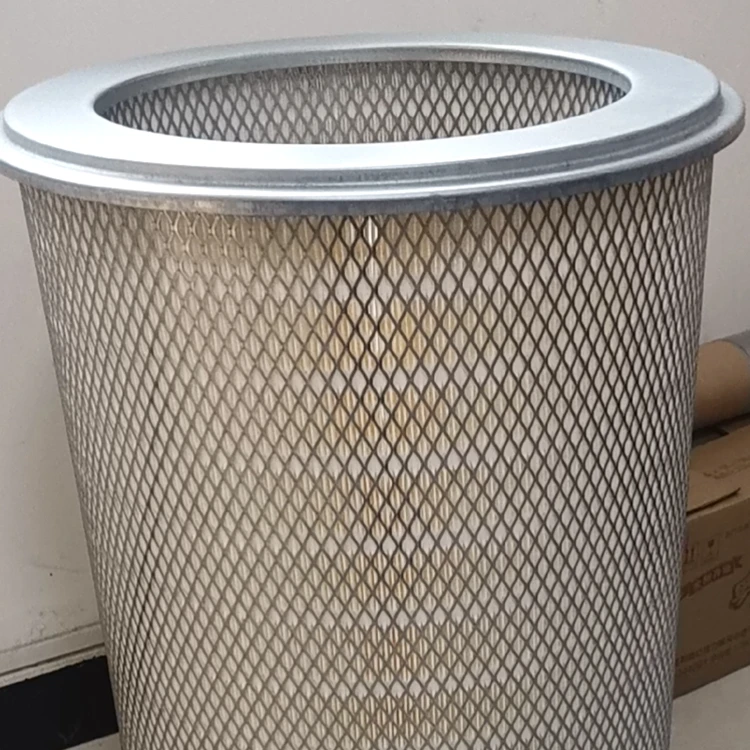 Tel:
+8618931101301
Tel:
+8618931101301
lis . 09, 2024 22:31 Back to list
Efficient Air Filter Cartridges for Dust Collection Systems and Their Benefits
Understanding Dust Collector Air Filter Cartridges
Dust collector air filter cartridges play a vital role in maintaining air quality in various industrial settings. They are essential components of dust collection systems, designed to capture and eliminate particulate matter from the air, ensuring a safer and cleaner working environment. This article aims to provide an overview of dust collector air filter cartridges, their importance, types, and maintenance.
The Importance of Dust Collector Air Filter Cartridges
Industries such as manufacturing, construction, and food processing often generate a significant amount of dust and airborne particles. If left unchecked, these pollutants can pose serious health risks to employees, lead to decreased productivity, and even result in regulatory fines. Dust collector air filter cartridges help mitigate these issues by trapping harmful particles, thus preventing them from contaminating the workplace air.
Proper filtration contributes to improved air quality, enhancing employee comfort and well-being. Additionally, maintaining clean air within a facility can increase the efficiency of production processes, minimize equipment wear and tear, and facilitate compliance with environmental regulations.
Types of Dust Collector Air Filter Cartridges
There are various types of air filter cartridges available, each designed to cater to specific needs and applications. The most common types include
1. Polyester Filters These are widely used due to their excellent filtration efficiency and durability. They can withstand high humidity levels and various chemicals, making them suitable for many industrial applications.
2. Cellulose Filters Natural fiber filters are effective for capturing coarse particles. However, they may not perform well in high-humidity environments and can degrade over time.
3. PTFE (Teflon) Filters PTFE filters are known for their superior filtration capabilities, especially for fine particles and hazardous fumes. They have a high resistance to chemical exposure and are often used in industries dealing with aggressive materials.
4. HEPA Filters High-Efficiency Particulate Air filters are designed to capture particles as small as 0.3 microns, achieving an efficiency of 99.97%. They are commonly used in applications requiring stringent air quality standards, such as pharmaceuticals and electronics manufacturing.
dust collector air filter cartridge

5. Activated Carbon Filters These filters are specifically designed to adsorb gaseous pollutants and odors, making them an ideal choice for applications where both particulates and fumes must be addressed.
Maintenance of Dust Collector Air Filter Cartridges
To ensure optimal performance of dust collector air filter cartridges, regular maintenance is crucial. Here are some key practices
1. Regular Inspections Routinely check filters for any signs of damage or clogging. This can help prevent system failures and maintain airflow efficiency.
2. Cleaning Depending on the type of cartridge and the industry application, some filters may require periodic cleaning. For instance, reverse pulse cleaning systems can help dislodge accumulated dust from filters, extending their lifespan.
3. Replacement Timely replacement of filter cartridges is essential for effective dust collection. Operating with worn-out filters can lead to decreased efficiency and increased energy consumption.
4. Monitoring Pressure Drop Keep an eye on the pressure drop across the filter. A significant increase in pressure drop can indicate a clogged filter that needs cleaning or replacement.
5. Documentation Maintaining records of filter usage and replacement schedules can help in planning maintenance activities and ensuring compliance with safety and environmental standards.
Conclusion
Dust collector air filter cartridges are indispensable in ensuring a clean, safe, and efficient workplace. By understanding their types, significance, and maintenance requirements, industries can protect not only their employees but also the environment. Investing in quality filter cartridges and adhering to a routine maintenance schedule will undoubtedly enhance air quality and operational efficiency, ultimately contributing to the success of any industrial operation.
-
Working principle of high-efficiency dust filter elementNewsJun.26,2025
-
The truth about washable filters: Does repeated use really not affect efficiency?NewsJun.25,2025
-
Effect of humidity on the performance of activated carbon filter elementsNewsJun.24,2025
-
Material selection considerations for dust removal filter elements under high temperature conditionsNewsJun.23,2025
-
Cold knowledge of air filters: Why are some designed to be pleated?NewsJun.16,2025
-
Factory direct supply! High-precision air filter element wholesale and customizationNewsJun.12,2025

 Email:
Email:





